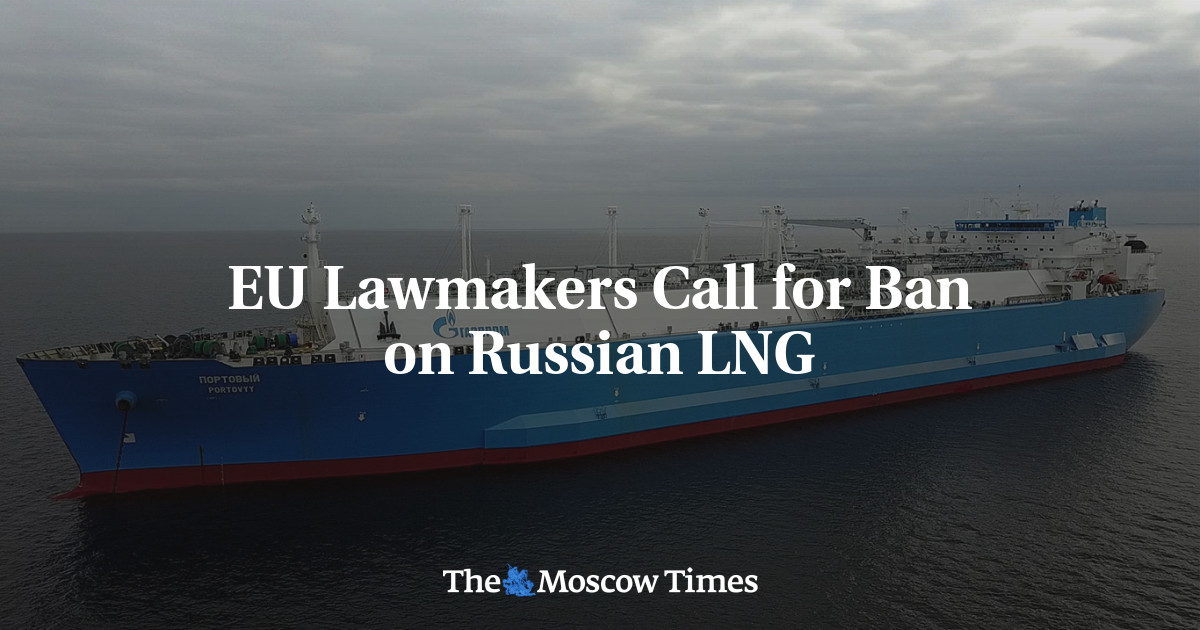
EU lawmakers on Thursday urged the bloc to ban imports of Russian liquefied natural gas (LNG) and to close loopholes present in existing sanctions against Moscow.
The EU has imposed 11 rounds of sanctions on Russia since the Kremlin launched its full-scale invasion of Ukraine in February 2022.
Brussels is currently working on proposals for a fresh package of sanctions, which is expected to include a ban on Russian diamonds.
Several EU member states in eastern Europe have also called for a ban on LNG in the next sanctions package.
But there seems to be little appetite across the bloc to impose a ban that could further roil Europe’s fragile gas markets and drive up energy prices.
In a non-binding resolution, the European Parliament urged the EU to sanction imports of liquefied natural gas and liquefied petroleum gas, the continued sales of which have helped fill the Kremlin’s coffers as it funds its war on Ukraine.
“The European Union still remains one of Russia’s largest fossil fuel clients, due to continued imports of pipeline gas and LNG, as well as various exceptions to the ban on importing crude oil and oil products,” a statement said.
The EU has imposed broad embargoes on most Russian oil and gas coming into the bloc.
But campaign group Global Witness said in August that the value of Russian LNG imports had soared by 40% since the invasion, amounting to 5.3 billion euros ($5.6 billion) for the first seven months of 2023.
Lawmakers also called on the G7 — of which the EU is a part — to “substantially lower” a price cap on Russian oil sales that was supposed to push down the Kremlin’s profits.
In September, U.S. Treasury Secretary Janet Yellen said that the current oil price cap had lost its effectiveness.